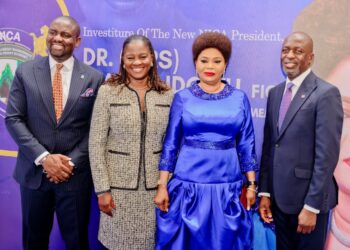A Federal High Court sitting in Lagos has ordered the final forfeiture of N1.29 billion to the federal government, ruling in favour of Sterling Bank Plc.
The Economic and Financial Crimes Commission (EFCC) revealed the decision in a statement released on Saturday. Justice Deinde Dipeolu granted the order after reviewing a motion filed on January 8 by EFCC counsel Hannatu KofarNaisa.
EFCC Traces Funds After System Glitch at Sterling Bank
The case originated from a system glitch at Sterling Bank, which enabled certain individuals to unlawfully withdraw N2.5 billion. Following a petition from the bank, the EFCC launched a thorough investigation. As a result, the Commission traced N1.29 billion to various accounts connected to the illicit withdrawals.
According to the EFCC, the funds were located in six different accounts:
N900 million in M Sharif Inter-Trading and Marketing Company Ltd’s UBA account
N255.8 million in Mustapha Abubakar’s UBA account
N12.1 million in Mustapha Sharif Abubakar’s UBA account
N41.1 million in Mustapha Sharif Abubakar’s Jaiz Bank account
N19 million in Abubakar Mustapha Sharif’s First Bank account
N30.8 million in Mustapha Sharif Abubakar’s Sterling Imal account
Subsequently, on March 12, the court issued an interim forfeiture order and directed the EFCC to publish it in a national daily. The notice appeared in Punch newspaper on March 24, giving the public an opportunity to contest the forfeiture.
Court Delivers Final Judgment
During the final hearing, EFCC counsel Hannatu KofarNaisa argued that the funds represented proceeds of unlawful activity. She pointed out that no individual or group came forward to dispute the forfeiture within the required timeframe. Moreover, she confirmed that all legal procedures had been followed.
Justice Dipeolu evaluated the motion and supporting documents before making his decision. He stated, “Having gone through the motion and attachments, I find the application meritorious and same is accordingly granted.”
With that ruling, the court officially transferred the funds to the federal government for the benefit of Sterling Bank. The EFCC described the judgment as a major step in its ongoing mission to combat financial crimes and recover stolen assets.
In conclusion, this case highlights the vulnerabilities in digital banking systems and reinforces the need for stronger cyber-security frameworks. It also reflects the EFCC’s commitment to enforcing financial accountability across Nigeria’s banking sector.











